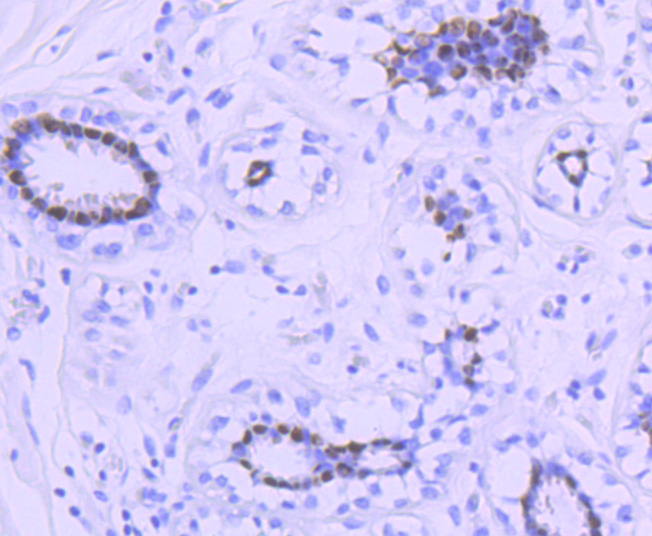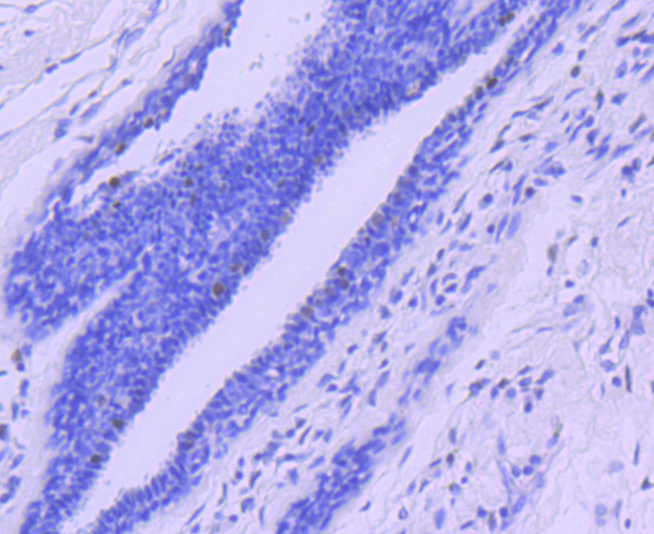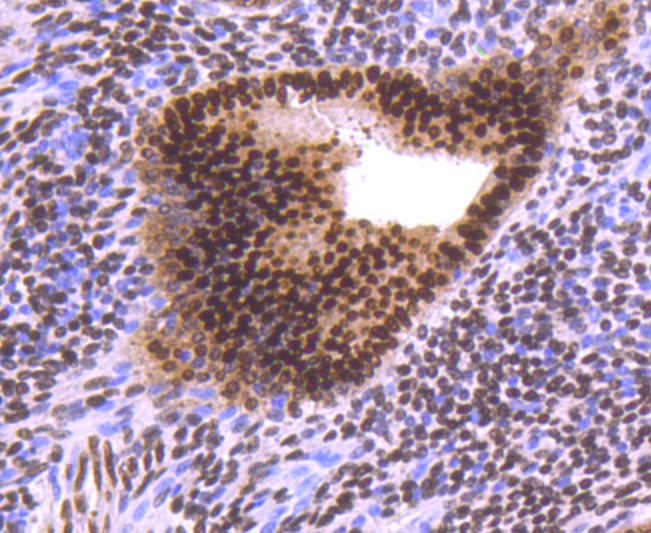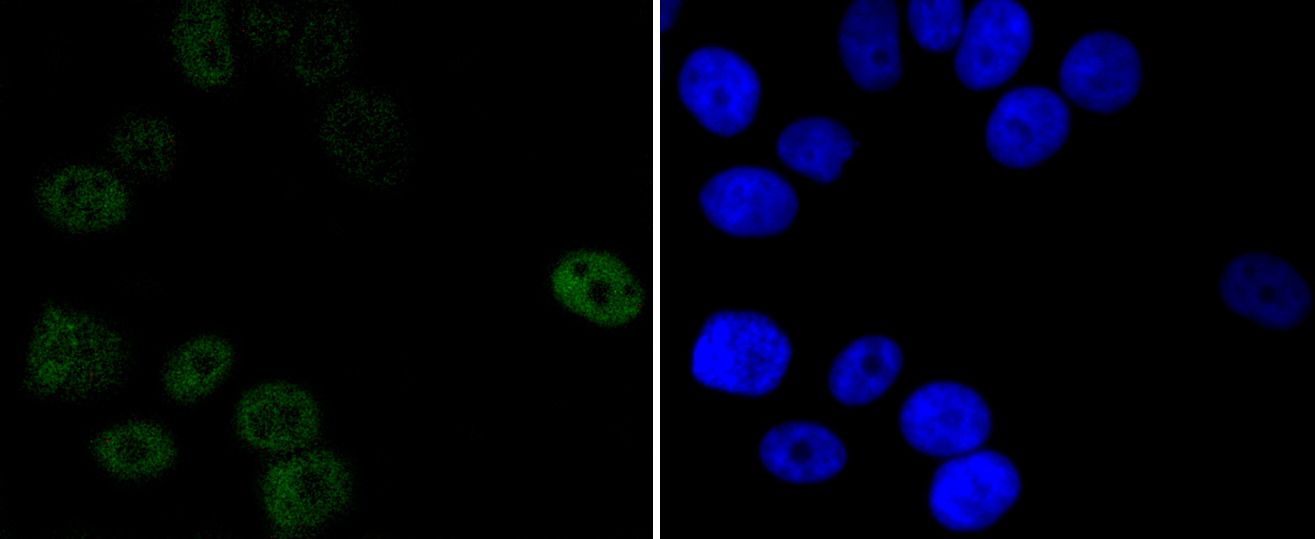Product Detail
Product NameProgesterone Receptor Rabbit mAb
Clone No.JF0549
Host SpeciesRecombinant Rabbit
Clonality Monoclonal
PurificationProA affinity purified
ApplicationsWB, ICC/IF, IHC, IP
Species ReactivityHu
Immunogen Descrecombinant protein
ConjugateUnconjugated
Other NamesNR3C3 antibody Nuclear receptor subfamily 3 group C member 3 antibody PGR antibody PR antibody PRA antibody PRB antibody PRGR_HUMAN antibody Progesterone receptor antibody Progestin receptor form A antibody Progestin receptor form B antibody
Accession NoSwiss-Prot#:P06401
Uniprot
P06401
Gene ID
5241;
Calculated MW99 kDa
Formulation1*TBS (pH7.4), 1%BSA, 40%Glycerol. Preservative: 0.05% Sodium Azide.
StorageStore at -20˚C
Application Details
WB: 1:1,000
IHC: 1:50-1:200
ICC: 1:50-1:200
Immunohistochemical analysis of paraffin-embedded human breast tissue using anti-Progesterone Receptor antibody. Counter stained with hematoxylin.
Immunohistochemical analysis of paraffin-embedded human breast carcinoma tissue using anti-Progesterone Receptor antibody. Counter stained with hematoxylin.
Immunohistochemical analysis of paraffin-embedded human uterus tissue using anti-Progesterone Receptor antibody. Counter stained with hematoxylin.
ICC staining Progesterone Receptor in MCF-7 cells (green). The nuclear counter stain is DAPI (blue). Cells were fixed in paraformaldehyde, permeabilised with 0.25% Triton X100/PBS.
The effects of progesterone are mediated by two functionally different isoforms of the progesterone receptor, PR-A and PR-B, which are transcribed from distinct, estrogen-inducible promoters within a single copy of the PR gene. The first 164 amino acids of PR-B are absent in PR-A. Progesterone-bound PR-A and PR-B have different transcription activation properties. Specifically, PR-B functions as a transcriptional activator in most cell and promoter contexts, while PR-A is transcriptionally inactive and functions as a strong ligand-dependent transdominant repressor of steroid hormone receptor transcriptional activity. An inhibitory domain (ID), which maps to the amino terminus of the receptor, exists within both PR isoforms. Interestingly, the ID is functionally active only in PR-A and is necessary for steroid hormone transrepression by PR-A, suggesting that PR-A and PR-B may have different conformations in the cell. Phosphorylation of human PR occurs on at least nine serine residues. Phosphorylation of three of the residues is hormone-inducible (Ser 102, Ser 294 and Ser 345); the others are basal but hormone-stimulated.
If you have published an article using product 49338, please notify us so that we can cite your literature.
et al,Liver Receptor homolog-1 Regulates Apoptosis of Bovine Ovarian Granulosa Cells by Progestogen Receptor Signaling Pathway. In Animals (Basel) on 2022 May 8 by Dejun Xu, Xiaohan Jiang, et al..PMID:35565639
, (2022),
PMID:
35565639






 Yes
Yes



